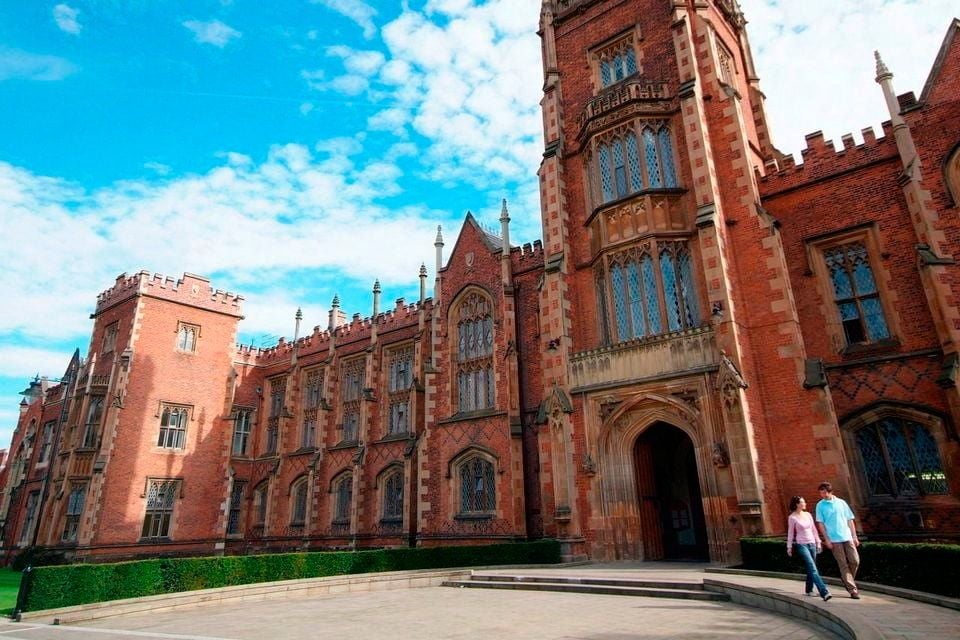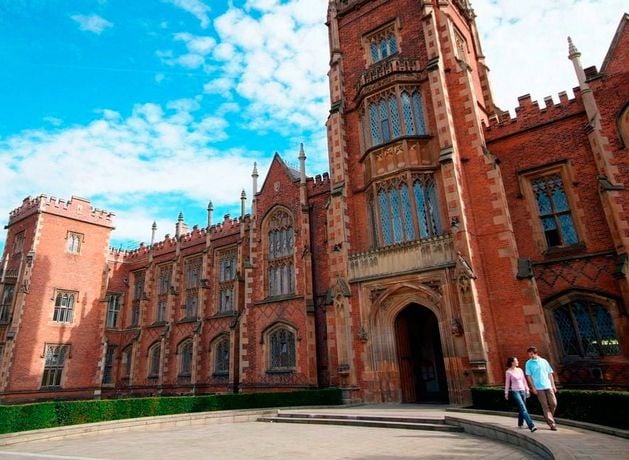Opinions on the environment split along sectarian lines, QUB and Ulster University study finds
The latest Northern Ireland Life and Times (NILT) Survey found Catholics were more likely to view climate change as caused by humans, to trust scientific experts, and to back stronger action.
Within Protestant denominations, attitudes vary, with Presbyterians notably more sceptical than members of the Church of Ireland.
The survey of 1,199 adults included 383 respondents who identified as Catholic, 193 as Presbyterian and 144 as members of the Church of Ireland.
It was carried out by ARK, a collaboration between Queen’s University Belfast and Ulster University.
Those of no religion and Catholics showed the highest levels of concern and support for action, followed by the Church of Ireland, with Others and Presbyterians lowest.
Regular religious service attendance was associated with a slight increase in scepticism on whether humans cause climate change, whether scientists can be trusted, and whether strong policy action is needed.
By contrast, people raised in a religion but no longer identifying with it expressed greater concern than people still part of denominations.
Respondents were asked if they believed climate change was caused by natural processes, human activity or both.
Some 62% of Catholics chose ‘mainly or entirely by human activity’, compared with 56% of Church of Ireland respondents, 49% of Others, and 38% of Presbyterians.
Trust in experts also diverged. Fewer than half (47%) of Presbyterians agreed scientific experts could be trusted to tell the truth about climate change, compared to three quarters (75%) of Catholics.
Asked whether politicians should be doing more, 80% of Catholics and those of no religion agreed, compared to 65% of Presbyterians.
On personal worry about climate change, the highest levels were among non-believers (78%), closely followed by Catholics (77%), then members of the Church of Ireland (69%), Presbyterians (53%) and Others (52%).
Catholics reported the strongest sense of personal responsibility to play their part (81%), ahead of Church of Ireland (75%) and Presbyterians (68%).
Co-author Dr Jonny Hanson, from Queen’s University’s School of Social Sciences, Education and Social Work, said: “Climate change is a defining issue of our time. There is therefore an urgent need for engagement with religious communities to address climate change in Northern Ireland and beyond.
“Our research points to the need for moral leadership from religious communities, especially as the Climate Change Act is fully implemented in the coming years.
“But the timing is good. The Presbyterian Church in Ireland is hosting a major conference at the end of September here in Belfast entitled God’s world: Our Responsibility?
“It will hopefully see much discussion and leadership on some of these very important issues.”

The research was published by Queen’s University
News Catch Up – Tuesday 16th September
Professor Gladys Ganiel, also from the School of Social Sciences, Education and Social Work, said: “The research shows strong connections between religion and climate attitudes in Northern Ireland, highlighting the importance of considering faith perspectives in climate debates and policymaking.”
Co-author Dr Emma Soye, from Queen’s School of History, Anthropology, Philosophy and Politics, added: “The NILT data suggests that those seeking to influence attitudes on climate change in different religious settings need to engage with specific realities within those communities.”
The full paper will be published by ARK in due course.
A spokesperson for the Presbyterian Church in Ireland said: “These are interesting findings. As a church, we will be holding a conference on September 27, in Belfast, entitled God’s World: Our Responsibility?
“At it, we will explore the biblical story, from creation to new creation, showing how our responsibility to God for the Earth connects with proclaiming the Gospel and loving our neighbour.
“The conference is for anyone interested in creation and our responsibility to it.”
The Catholic Communications Office was contacted for comment.
